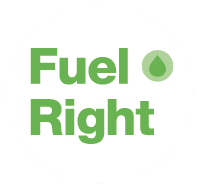Yes, Diesel Fuel Additives Can Help Performance
Enhancing the performance of diesel engines involves the use of specialized fuel enhancers that optimize various mechanical processes. These formulations not only boost combustion efficiency but also significantly reduce harmful emissions.
Improved combustion leads to more thorough fuel utilization, thereby enhancing overall engine performance.
Many products include cetane boosters, which improve ignition quality, especially beneficial in colder climates.
Numerous injector cleaners are included in these additives, preventing the accumulation of deposits that can impair efficiency over time. The adoption of these additives also promotes increased fuel stability, allowing the fuel to remain effective over longer durations.
What Is A Diesel Fuel Additive
Additives blended with diesel fuel play a significant role in improving overall engine functionality and environmental impact. These substances are designed to enhance combustion efficiency while promoting cleaner emissions, resulting in a more environmentally friendly operation.
Various types of additives can be utilized, each offering distinct advantages.
For instance, employing a fuel system cleaner helps remove deposits from injectors, ensuring optimal performance and longevity of the engine components.
Some additives act as lubricity agents, which protect fuel pumps and injectors from wear, thus contributing to the durability of the entire fuel system. Cold flow improvers are especially beneficial in low-temperature conditions, allowing diesel to maintain usability without compromising performance.
The influence of these additives on engine performance extends beyond mere fuel efficiency; they can also play a pivotal role in reducing particulate matter emissions, which is critical for meeting stringent environmental regulations.
Understanding Fuel Economy And Diesel Additives
The efficiency of diesel vehicles is closely related to how well they convert fuel into mileage, a key aspect of fuel economy. Various additives play a significant role in enhancing this conversion process.
For instance, certain products function as a corrosion inhibitor, effectively preventing the deterioration of vital engine components.
Many users may not realize that these additives can serve as a water emulsifier, which helps prevent water contamination in fuel.
By maintaining optimal combustion conditions, these additives contribute to better energy output and reduced emissions. Several formulations are designed specifically for emissions reduction, aiding compliance with increasingly stringent environmental standards.
Transitioning from understanding these components, it is also important to explore how cetane boosters improve vehicle performance.
Diesel Vehicle Efficiency
- Additives can significantly enhance fuel conversion efficiency, leading to improved mileage.
- Corrosion inhibitors prevent damage to engine components, prolonging vehicle lifespan.
- Water emulsifiers help maintain fuel purity, reducing the risk of water contamination.
- Cetane boosters are essential for optimizing combustion, resulting in better energy output and lower emissions.
How Do Cetane Boosters Improve Performance
Specialized additives play a crucial role in optimizing diesel fuel, particularly through their influence on ignition properties. By increasing the cetane rating, these additives enhance fuel quality, resulting in a more efficient combustion process.
Chemically, cetane boosters modify the characteristics of the fuel, leading to improved ignition quality.
This enhanced fuel treatment allows for more complete combustion, which not only boosts engine performance but also reduces noise and lowers emissions, thereby positively impacting air quality.
It is important to recognize that misconceptions about these additives can lead to confusion; they are not universally applicable, as various diesel engines may respond differently to these improvements. Products such as diesel conditioners contribute to thermal stability, further enhancing overall engine operation.
Transitioning from fuel treatment to the next topic, understanding the role of injector cleaners is crucial in maintaining optimal engine performance.
The Role Of Injector Cleaners In Maintenance
Ensuring the efficient operation of fuel injectors is key to vehicle performance and longevity. Injector cleaners play a pivotal role by addressing the buildup of deposits, which can impede fuel flow and affect engine protection over time.
Various formulations, including solvent cleaners, are specifically engineered to tackle tough residues, promoting an unobstructed passage for fuel.
Regular usage of these products has been linked to an impressive 15% improvement in fuel economy, highlighting their impact on operational efficiency.
Cleaner systems not only enhance engine performance but also contribute to reduced emissions, benefiting both vehicle health and environmental standards. Data shows that certain injector cleaners have been tested for biodiesel compatibility, ensuring they can be used with alternative fuel types without compromising effectiveness.
| Benefit | Impact |
|---|---|
| Improvement in fuel economy | 15% increase |
| Enhanced engine performance | Improved operational efficiency |
| Reduction in emissions | Meets environmental standards |
| Biodiesel compatibility | Effective with alternative fuel types |
Enhancing Fuel Stability For Better Efficiency
Maintaining the integrity of fuel is fundamental for achieving optimal engine performance. Unstable fuel can lead to incomplete combustion, resulting in a loss of power gain and increased emissions.
Various factors, including temperature fluctuations, can significantly degrade fuel quality, while water contamination may compromise it further.
To bolster stability, utilizing stabilizers and employing proper storage techniques are beneficial.
Implementing best practices not only minimizes the risk of contamination but also aids in maintaining a cleaner fuel environment. Interestingly, specific biocide additives enhance fuel longevity and promote smoke reduction, contributing to a cleaner combustion process and improved engine functionality.
The relationship between fuel quality and injector cleaners is particularly noteworthy; maintaining injectors is imperative for overall vehicle health. Transitioning from injector maintenance, understanding the role of biocide additives for diesel can provide deeper insights into enhancing fuel performance.
What Is A Biocide Additive For Diesel
Effective management of diesel fuel quality is increasingly important due to the susceptibility of fuel to microbial growth. Biocide additives serve as specialized chemical agents designed to combat this issue by preventing the proliferation of bacteria and fungi, which often flourish in the moisture present in fuel.
These additives not only help maintain fuel quality but also play a significant role in enhancing engine performance.
Interestingly, non-oxidizing biocides are frequently chosen for their ability to provide long-term algae prevention without altering the chemical properties of the fuel.
Conversely, while oxidizing biocides act quickly against contamination, they may influence oxidation rates and lead to fuel stability concerns. Proper application is crucial to ensure effective algae prevention and to minimize potential environmental impacts.
For those considering options for improving cold weather performance, certain biocide formulations may also provide additional benefits. Transitioning from microbial control to another aspect of fuel maintenance, such as algae prevention, oxidation management, engine cleaning, enhancing cold weather performance, and optimizing cetane rating.
Benefits Of Using A Corrosion Inhibitor
Effective maintenance of fuel systems significantly impacts their overall performance, often through the incorporation of specialized additives. These substances, particularly in diesel care, serve to inhibit corrosive processes that can degrade engine integrity.
By enhancing the longevity of engine components, these agents can potentially extend life by up to 50%, translating to substantial savings in repair costs.
They play a pivotal role in fuel stability, an aspect frequently overlooked despite its importance for optimizing system efficiency.
Utilizing such additives not only prevents detrimental breakdowns but also ensures reliable performance and reduced maintenance expenses over time.
How Do Additives Affect Emissions Control
Optimizing the performance of engine fuel can significantly influence pollution levels. Fuel additives serve a vital function by enhancing combustion efficiency, which reduces the release of harmful emissions.
Certain compounds promote deposit removal within the engine, effectively preventing sludge accumulation.
This maintenance not only boosts overall engine performance but also limits the expulsion of unburned hydrocarbons into the atmosphere.
A variety of additives utilize specific chemistry to modify the combustion process, leading to lower emission outputs. For instance, the inclusion of oxygenates can facilitate more complete fuel combustion, resulting in diminished particulate matter emissions.
Selecting the right fuel additives is imperative for achieving effective emissions control while adhering to environmental standards.
Contact Us
Fairville Products, Inc
Fuel Right
41 Germay Drive,
Wilmington, DE 19804
Phone: (302) 425-4400
Email: sales@fuelright.com
Web: http://FuelRight.com
Upcoming Events

VISIT US! NOVEMBER 12 - 14
2024 International Workboat Show
Booth #1660
Morial Convention Center
New Orleans, LA
CLICK HERE FOR DETAILS

